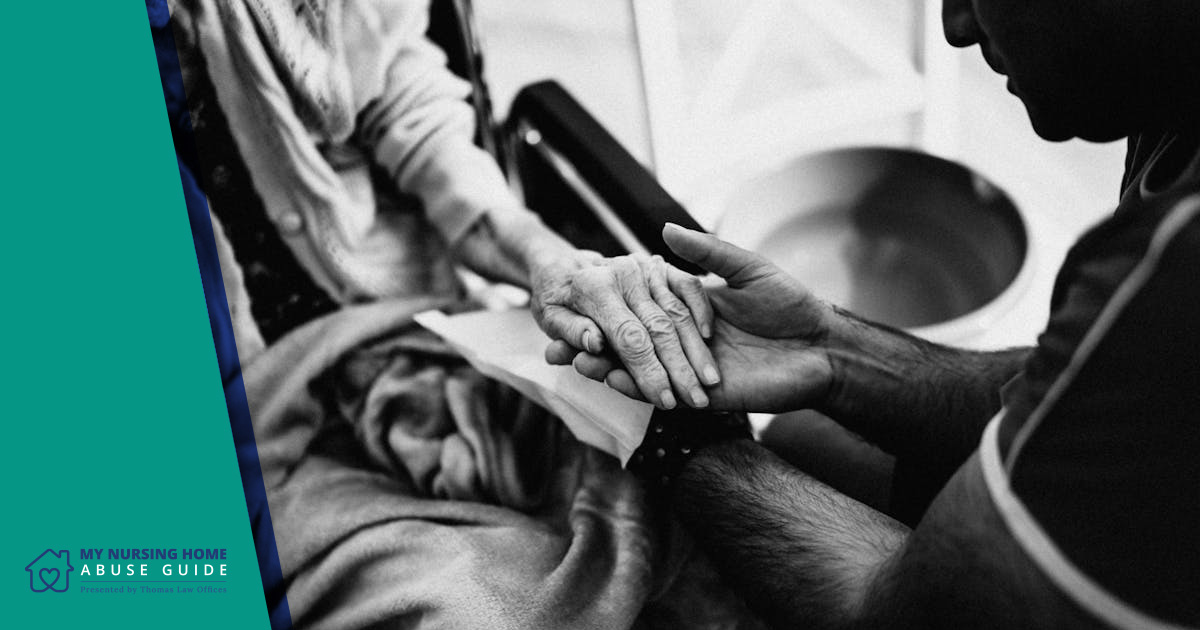Your Guide to Nursing Home Abuse & Prevention
Millions of elderly adults live in nursing home facilities.
Every one of them deserves to feel safe, protected, and respected.
Millions of elderly adults live in nursing home facilities.
Every one of them deserves to feel safe, protected, and respected.

When most people think about nursing home abuse, they imagine a staff member mistreating or neglecting a resident. But there is another form of harm that does not get much attention, and that’s resident-on-resident violence.
Residents themselves sometimes lash out at each other. So, how often do nursing home residents abuse other residents? Here is what you need to know to keep your loved one safe.
A 2016 landmark study from Cornell University looked closely at resident-to-resident mistreatment across 10 nursing homes. Over just four weeks, about 20% of residents, which is one in five, had experienced some form of aggression from another resident. Here is what we know from these incidents:
What does this mean? If you walked into any nursing home and spent a month observing, you may see some residents dealing with aggression from their peers.
So, why would older adults in a care setting attack one another? There is no easy answer. However, cognitive decline plays a huge role. Dementia and Alzheimer’s can lead to confusion, paranoia, or frustration. Many times, that turns aggressive.
Mobility and activity levels matter, too. Residents who are more mobile encounter more people.
Unfortunately, that increases the chance of conflict. Environmental factors may also be at play. Crowded hallways, shared rooms, or low staff-to-resident ratios create stress and reduce oversight. This can give aggression more opportunity to flare up.
In other words, these incidents are not always about unchecked anger. They are about illness, environment, and unmet needs.
The effects of resident-to-resident abuse are more than bruises and cuts. Being yelled at or threatened in a safe home can lead to anxiety, depression, or withdrawal. Some physical assaults cause serious harm, including fractures, dislocations, or head injuries that may require hospitalization.
Repeated aggression also erodes a resident’s sense of dignity and peace of mind, especially if they are vulnerable and cannot defend themselves.
Families are often shocked to discover that their loved one’s suffering didn’t come from staff neglect, but from another resident. Unfortunately, staff sometimes minimize these events as “residents not getting along.” And that can leave victims without proper protection.
If about one in five residents experiences aggression in a single month, why is this issue not more widely reported? Part of the problem is underreporting. Some residents cannot communicate clearly due to health conditions. Many times, they may be too afraid or embarrassed to speak up.
Definitions of abuse can also vary widely. What one facility considers “wandering” into another resident’s room might be a frightening invasion of privacy. Additionally, attention tends to focus on staff-to-resident abuse. That can leave peer aggression in the shadows.
Because of these factors, the actual frequency of resident-to-resident abuse could be even higher than studies suggest.
If you have a loved one in a nursing home, there are several ways to help reduce the risk of resident-to-resident aggression and spot problems early.
One way is to visit your loved one often. You may want to stop at different times of the day. That can give you a clearer picture of how your loved one is treated. For example, aggression may be more likely during meals or evenings when staffing is thinner.
You want to pay close attention to sudden changes in behavior. Always ask questions if your loved one seems more withdrawn, anxious, or fearful. Also, look for unexplained injuries, such as small bruises or scratches, which can be warning signs that something is wrong.
It’s important to communicate openly with staff, asking how they handle resident-to-resident aggression and what safeguards are in place.
And above all, trust your instincts. If something feels off, it probably is.
No family should have to wonder whether their loved one is safe in a nursing home. If you suspect that another resident has harmed your parent, spouse, or relative, it may be time to speak with a nursing home abuse lawyer.
An experienced attorney can review what happened, explain your options, and help you hold the facility accountable for keeping residents safe.
Your loved one deserves dignity, respect, and protection. If you’re ready to take the next step, we have plenty of resources available at My Nursing Home Abuse Guide.
This website was created and is maintained by the legal team at Thomas Law Offices. Our attorneys are experienced in a wide variety of nursing home abuse and neglect cases and represent clients on a nationwide level. Call us or fill out the form to the right to tell us about your potential case. We will get back to you as quickly as possible.
866-351-2504